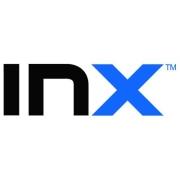GRC solutions allow organizations to manage governance, risk, and compliance processes effectively. They integrate policies and controls, monitoring risks, and tracking compliance activities.
Modern GRC solutions streamline the complex web of governance, risk management, and compliance tasks. By automating workflows and creating unified dashboards, they provide users the ability to monitor compliance status and mitigate risks efficiently. User insights highlight the importance of intuitive interfaces, scalability, and adaptability of these solutions, emphasizing real-world adaptability across sectors.
What are key features to consider?GRC solutions find implementation in industries such as finance, healthcare, and manufacturing. Each sector leverages these solutions to meet specific regulatory standards and protect sensitive information while ensuring operational efficiency. Tailoring the solution to industry-specific needs is critical for achieving desired outcomes.
Effective governance, risk management, and compliance facilitate businesses in maintaining competitive advantage and sustainability. By integrating these elements, organizations build resilient systems capable of adapting to changing regulations and market demands.
| Product | Market Share (%) |
|---|---|
| RSA Archer | 12.8% |
| OneTrust GRC | 6.7% |
| AuditBoard | 6.0% |
| Other | 74.5% |



















































































































GRC streamlines risk management, compliance, and governance by integrating key business processes. It enhances decision-making through real-time data insights, reducing risks and ensuring regulatory adherence. Centralized frameworks facilitate consistent policy enforcement and simplify audits. Automation within GRC minimizes manual tasks, boosting operational efficiency. It supports strategic alignment by fostering communication across departments, ensuring all stakeholders understand organizational objectives. Advanced GRC platforms provide customizable dashboards, enabling tailored risk assessments and reporting. Predictive analytics capabilities enable proactive risk mitigation strategies. A structured GRC approach strengthens security posture and enhances organizational resilience against emerging threats.
GRC solutions proactively identify, assess, and mitigate potential risks by automating risk management processes. You can gain a comprehensive view of potential risks, allowing for strategic planning and timely action. Advanced data analytics in GRC tools help you quickly understand risk trends and patterns, leading to more informed decision-making that can protect your organization from unexpected threats and enhance compliance.
What are the benefits of integrating IT governance in GRC frameworks?Integrating IT governance in GRC frameworks helps align your technology policies with business objectives. Through integration, you can ensure that your IT systems support compliance and risk management goals. This integration fosters a culture of accountability and transparency, allowing for efficient resource allocation and streamlined processes which improve operational performance and maintain regulatory compliance.
Why is automation crucial in compliance management using GRC?Automation in compliance management simplifies the process of tracking and managing regulatory requirements. By automating these tasks, GRC solutions reduce the manual workload and decrease the chances of human error. You gain consistent monitoring of compliance activities, ensuring up-to-date adherence to industry standards and regulations. This not only helps in maintaining regulatory credentials but also allows your team to focus on strategic activities that can drive business growth.
How do GRC tools support audit processes?GRC tools streamline and enhance audit processes by providing centralized data management and real-time monitoring capabilities. This allows for seamless access to critical data and documentation required during an audit, reducing preparation time. You benefit from automated report generation and audit trails, enabling clearer insights, facilitating efficient audits, and ensuring compliance with internal and external standards.
What role does GRC play in strategic decision-making?GRC plays a vital role by providing a framework that integrates risk management, compliance, and governance into everyday business processes. This ensures that you have comprehensive insights into operational activities and potential risks. By aligning these processes with organizational goals, GRC enables you to make strategic decisions that are informed, reduce risk exposure, and enhance operational efficiency. This integration supports business growth while maintaining a robust control environment.